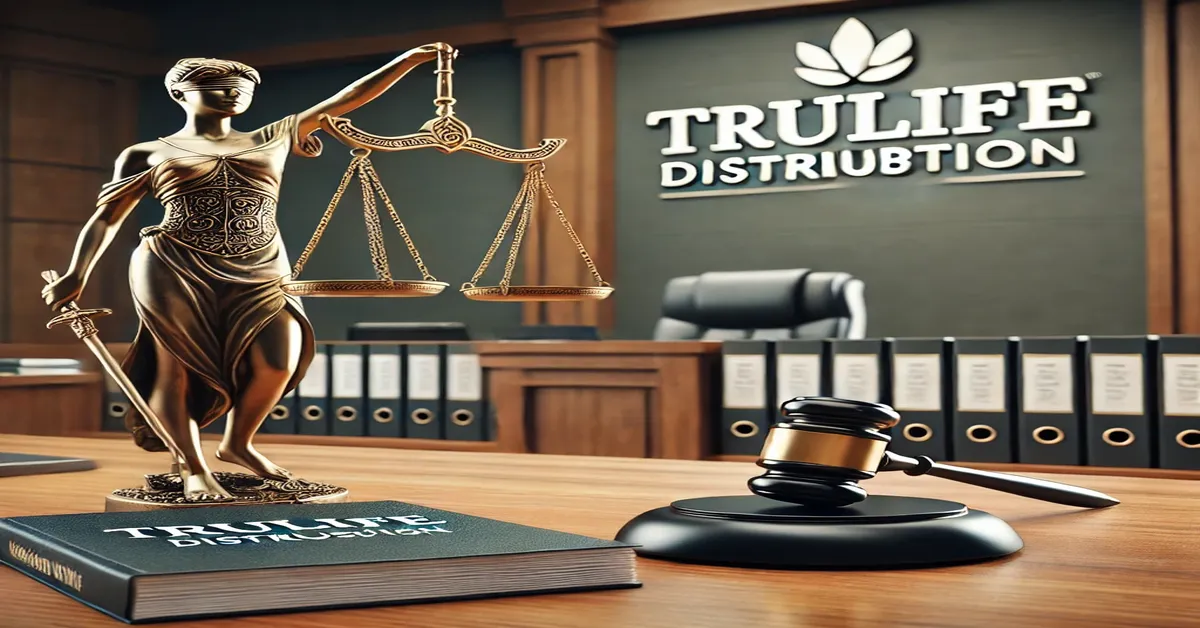Legal battles are an inevitable part of business, and the health and wellness sector is no stranger to them. Among the latest controversies is the TruLife Distribution lawsuit, a case that has sparked curiosity and concern within the supplement industry and beyond. As a company known for its nutritional products and services, TruLife Distribution has become the focal point of a legal dispute that raises questions about business practices, consumer rights, and the future of the industry. This article breaks down the lawsuit, its core issues, and the implications for all parties involved.
The Background of TruLife Distribution
Before diving into the lawsuit, it’s essential to understand what TruLife Distribution represents. Known for marketing and distributing health supplements, the company has positioned itself as a key player in the wellness sector. Offering services like brand development, market penetration strategies, and distribution solutions, TruLife Distribution has worked with a range of supplement manufacturers aiming to reach a broader audience.
The company’s innovative approach and growing reputation have earned it partnerships with both emerging and established brands. However, such success in a competitive industry often brings scrutiny—and in this case, legal trouble.
What Is the TruLife Distribution Lawsuit About?
At the heart of the TruLife Distribution lawsuit are allegations that challenge the company’s business practices. While specific details vary depending on the sources, the central issues revolve around claims of misleading practices, contractual disputes, and potential regulatory non-compliance.
One of the most significant accusations involves the alleged failure to meet contractual obligations with partnering brands. Companies working with TruLife Distribution reportedly raised concerns about unmet promises regarding marketing strategies and distribution goals.
Another dimension of the case is linked to transparency. Critics claim that certain agreements were not adequately explained to clients, leading to misunderstandings and dissatisfaction. These allegations have not only tarnished the company’s reputation but also placed its relationships with existing partners under strain.
Allegations and Claims: What’s Being Said?
The lawsuit has brought forward several key allegations, each adding to the complexity of the case:
- Contractual Breaches: Multiple companies allege that TruLife Distribution failed to fulfill terms outlined in their agreements. This includes inadequate delivery of promised marketing efforts and distribution support.
- Misrepresentation: Some claim that the company misrepresented its capabilities, exaggerating the potential success or market reach of its services.
- Regulatory Compliance Issues: Questions surrounding the compliance of TruLife’s practices with industry regulations have also emerged, further complicating the case.
While the company has not publicly addressed all the allegations, these claims highlight the challenges that arise in business relationships, especially in a competitive and fast-moving industry like supplements.
The Legal Process: How Is the Lawsuit Progressing?
As with any legal case, the TruLife Distribution lawsuit is unfolding in stages. Preliminary hearings, evidence gathering, and negotiations are likely shaping the trajectory of the case. While specific updates remain limited, lawsuits of this nature typically aim for either a court ruling or an out-of-court settlement.
The court proceedings will be instrumental in determining the validity of the claims and whether TruLife Distribution has, in fact, acted inappropriately. Observers are paying close attention, as the outcome could set a precedent for similar disputes in the supplement industry.
Implications for the Supplement Industry
The TruLife Distribution lawsuit has implications that extend far beyond the company itself. Here are a few key takeaways for the industry at large:
- Consumer Trust: Legal battles can erode consumer confidence in brands and the industry. Transparency and accountability are critical for maintaining trust in the supplement market.
- Industry Regulations: The case sheds light on the importance of compliance with industry standards. Companies may face increased scrutiny to ensure they adhere to legal and ethical practices.
- Impact on Partnerships: The allegations against TruLife raise questions about vetting processes when forming business partnerships. This case serves as a reminder for companies to conduct thorough due diligence before entering agreements.
Lessons for Businesses in the Wellness Space
The TruLife Distribution lawsuit is more than just a cautionary tale; it’s a learning opportunity for businesses in the wellness industry. Here’s what companies can take away from this situation:
- Transparency is Non-Negotiable: Clear communication with partners and clients can prevent misunderstandings that lead to legal disputes.
- Set Realistic Expectations: Overpromising and underdelivering can damage relationships and open the door to lawsuits. Businesses should ensure their claims align with their capabilities.
- Compliance is Key: Adhering to industry regulations isn’t just about avoiding lawsuits; it’s about building a credible and ethical brand.
Consumer Perspectives: How Does This Impact Buyers?
For consumers, the lawsuit raises questions about the reliability of supplement brands and distributors. Buyers should be vigilant and conduct research before purchasing products, especially in an industry where legal disputes and misleading claims are not uncommon.
Reading labels, verifying certifications, and seeking third-party reviews can help consumers make informed choices. The case also underscores the importance of regulatory oversight in ensuring that products meet safety and efficacy standards.
What’s Next for TruLife Distribution?
The outcome of the lawsuit will undoubtedly shape the future of TruLife Distribution. If the court rules in favor of the plaintiffs, the company could face financial penalties, damaged partnerships, and reputational harm. On the other hand, if TruLife successfully defends itself, it may need to work diligently to rebuild trust and address any lingering doubts about its practices.
Regardless of the outcome, the case serves as a pivotal moment for the company. It presents an opportunity to reflect, improve, and emerge stronger—should it choose to adopt a more transparent and client-focused approach moving forward.
Frequently Asked Questions About the TruLife Distribution Lawsuit
What triggered the lawsuit?
The lawsuit was reportedly initiated by concerns from partnering brands over unmet contractual obligations and allegations of misrepresentation.
Has TruLife Distribution made a public statement?
As of now, the company has not issued a detailed response addressing the allegations. Observers are closely monitoring for updates.
How does this affect the supplement industry?
The lawsuit highlights the need for stricter compliance and transparency in the industry, encouraging companies to prioritize ethical business practices.
What should consumers be aware of?
Consumers are encouraged to remain cautious when purchasing supplements, researching brands thoroughly and looking for credible third-party certifications.
Final Thoughts: Navigating Controversies in Business
The TruLife Distribution lawsuit serves as a reminder of the complexities that businesses face in competitive industries. While the case unfolds, it offers valuable lessons for companies, consumers, and regulators alike. Transparency, accountability, and compliance remain the pillars of sustainable success, especially in sectors where trust is paramount.
As the supplement industry continues to evolve, legal disputes like this one underscore the importance of fostering ethical practices and prioritizing the interests of all stakeholders. Whether you’re a business owner, industry professional, or consumer, staying informed and vigilant is essential for navigating challenges in this ever-changing landscape.











